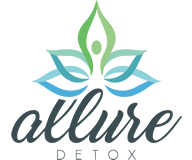Taking drugs can go from “just trying it out for fun” to “I can’t function without it” in the blink of an eye. It doesn’t matter how young you are; everyone can fall into that trap.
Luckily, the people of Miami can find the help they need, no matter how deep they’ve fallen into their addiction. It’s never too late to find help because nobody is a lost cause.
Drug Rehabilitation centers work hard to provide the right treatment option that best suits every individual case. Ultimately, they do their best to keep our community healthy and safe. There are many drug rehab treatment types, but before we dive into those, let’s cover the basics.
Table of Contents
- 1 What’s Drug Addiction?
- 2 What’s Rehabilitation?
- 2.1 Types of Drug Rehab Treatments
- 2.1.1 1. Detoxification Programs
- 2.1.2 2. Residential Treatment
- 2.1.3 3. Partial Hospitalization Programs (PHP)
- 2.1.4 4. Outpatient Programs
- 2.1.5 5. Intensive Outpatient Programs (IOP)
- 2.1.6 6. Sober Living Homes (Sober Living in Miami)
- 2.1.7 7. Individual Counseling
- 2.1.8 8. Group Counseling
- 2.1.9 9. Family Therapy
- 2.1.10 10. 12-step Programs
- 2.1.11 11. Holistic Therapies
- 2.1.12 12. Dual Diagnosis
- 2.1.13 13. Aftercare Programs
- 2.1 Types of Drug Rehab Treatments
- 3 Examples of Local Resources and Support Systems
- 4 All in All
What’s Drug Addiction?
Being addicted to drugs means you have no control over taking or using certain substances to the extent that it harms you.
Many might think it’s a matter of will and motivation to stop taking drugs. On the contrary, addiction is actually a neuropsychological disorder where users have a strong urge to reach an immediate euphoric sensation, even if it harms them.
That is why addicts need help from a professional to guide them through their rehabilitation journey and support them through their ups and downs.
Since Miami is known as a bustling port city on the southeast coast, it’s deemed a hot spot for drug distribution—and drug abuse.
According to statistics from the Substance Abuse and Mental Health Service Administration (SAMHSA), around 6.3% of Florida’s population suffers from drug addiction. That puts Florida in second place right after California in the number of drug addiction cases per state.
What’s Rehabilitation?
Drug Rehabilitation is the process of treating a person who’s dependent on any type of addictive substance. This process is done by many therapeutic approaches, such as medical or psychotherapeutic treatments, depending on the severity of each case.
In hopes of helping as many people as possible, Florida became the recovery capital of the US. Since Miami has many top-tier treatment centers, beautiful scenery, and all-year-round sober activities to fill a patient’s free time, it’s easily one of the most sought-after locations for recovery.
Types of Drug Rehab Treatments
Drug Rehab treatments come in so many types. There are plenty of programs to choose from, so every patient can find the one that fits them and their lifestyle the best.
Despite all the differences between the treatment programs, the ultimate goal of every program is to help the patients recover from their dependence and provide them with a better quality of life.

In Miami, you’ll mainly find these 13 types of rehabilitation treatments.
1. Detoxification Programs
This program is usually the first step of every rehab treatment. Detoxification is the process of removing any traces of the abused drug from the patient’s body. In other words, it helps the patient begin their treatment journey with a clean slate.
The reason for this step is to support the patient within a controlled environment as they go through their withdrawal symptoms.
2. Residential Treatment
Otherwise known as inpatient rehab treatment, residential treatment programs are when patients stay at a rehab center to receive 24-hour medical care for as long as they need it.
This treatment program helps the patients improve by focusing on their well-being and beating their addiction without any distractions from the outside world. It allows them to put their foot on the right route to a healthier life.
3. Partial Hospitalization Programs (PHP)
Partial hospitalization programs, or day programs, are similar to the residential treatment program in which patients are required to have meetings for 4 to 7 days per week.
The difference between both is that patients get to go home after every meeting, no matter how long they need to stay at each one. These meetings usually include group therapies, family work, and medication monitoring.
4. Outpatient Programs
These programs are best for patients who no longer need detoxification or close round-the-clock monitoring. They’re also fit for patients with mild to moderate addiction who don’t need full-time residence at the facility.
Outpatient programs provide their patients with daily schedules to help them stick to their new healthy habits and stay away from anything that could cause a relapse.
5. Intensive Outpatient Programs (IOP)
Although this treatment program is classified as an outpatient treatment, it’s intensive enough to accommodate every aspect of the patient’s life. That includes their work, family, school, or social life.
This program is similar to regular outpatient programs but with less flexibility and more discipline. They try to not leave anything ambiguous or unthought of for the patient to prevent them from falling back into their old addiction.
6. Sober Living Homes (Sober Living in Miami)
Sober living homes or halfway houses act as a transitional phase between inpatient residential treatment programs and going back to the outside world.
Sober homes are recommended for patients who don’t have anywhere to go after finishing their residential program or those who don’t feel ready yet to go back home and be on their own.
7. Individual Counseling
Individual counseling is for one-on-one therapy to help patients realize the root of their addiction problem and learn how to cope with it through cognitive behavioral therapy.
This treatment is usually an essential part of any treatment journey to help patients learn how to support themselves from the inside.
8. Group Counseling
Unlike individual counseling, group counseling or therapy creates a safe community for patients to socialize and bond with people who share similar experiences.
Patients socialize and share experiences in the hope of empowering one another to remain sober and prevent relapse.
9. Family Therapy
This type of therapy gets the family involved in the patient’s treatment journey. It helps heal the relationships that were damaged because of the patient’s addiction problem and explains to the patient’s family how to care for the patient at home.
That way, patients would find the kind of support they need at home to stay strong and fight addiction.
10. 12-step Programs
This type of therapy is a detailed program that walks the patient through all the steps to recovery, including overcoming addiction, avoiding triggers, and living a healthy life.
Some examples you might’ve heard of are Alcoholics Anonymous (AA) and Narcotics Anonymous (NA).
11. Holistic Therapies
These therapies are great complementary additions to a treatment program. Holistic therapies include yoga, acupuncture, equine therapy, art therapy, and many more activities that aim to heal the mind, body, and soul of the patient.
12. Dual Diagnosis
As the name insinuates, this type of therapy is for those who suffer from a disorder along with addiction, such as a co-occurring mental health disorder. In this case, patients need special treatment that addresses both disorders simultaneously.
13. Aftercare Programs
After a patient has finished their treatment program, they follow up with aftercare programs for ongoing support and reinforcing prevention strategies to steer them away from relapse.
Examples of Local Resources and Support Systems
There are plenty of examples of local resources and support systems to help you through your treatment journey. These resources include:
1. Substance Abuse and Mental Health Services Administration (SAMHSA) Treatment Referral Hotline
You can reach them at 800-662-HELP(4357). They’ll connect you with addiction counselors who can help you with treatment facilities, group therapies, and other community-based services.
2. Substance Abuse and Mental Health at Florida Department of Children and Families (DCF)
This resource gathers everything you’ll need, from treatment and prevention services to adult and children mental health programs. You’re sure to find the help you need to live a healthier life.
All in All
If you, or someone you know, are battling addiction and want this nightmare to end, don’t hesitate to reach out for help right away. No matter how severe your addiction is, we can help you come through and turn your life around.
Contact us at Allure Detox, and we’ll do the rest.
Published on: 2023-06-28
Updated on: 2023-08-07


